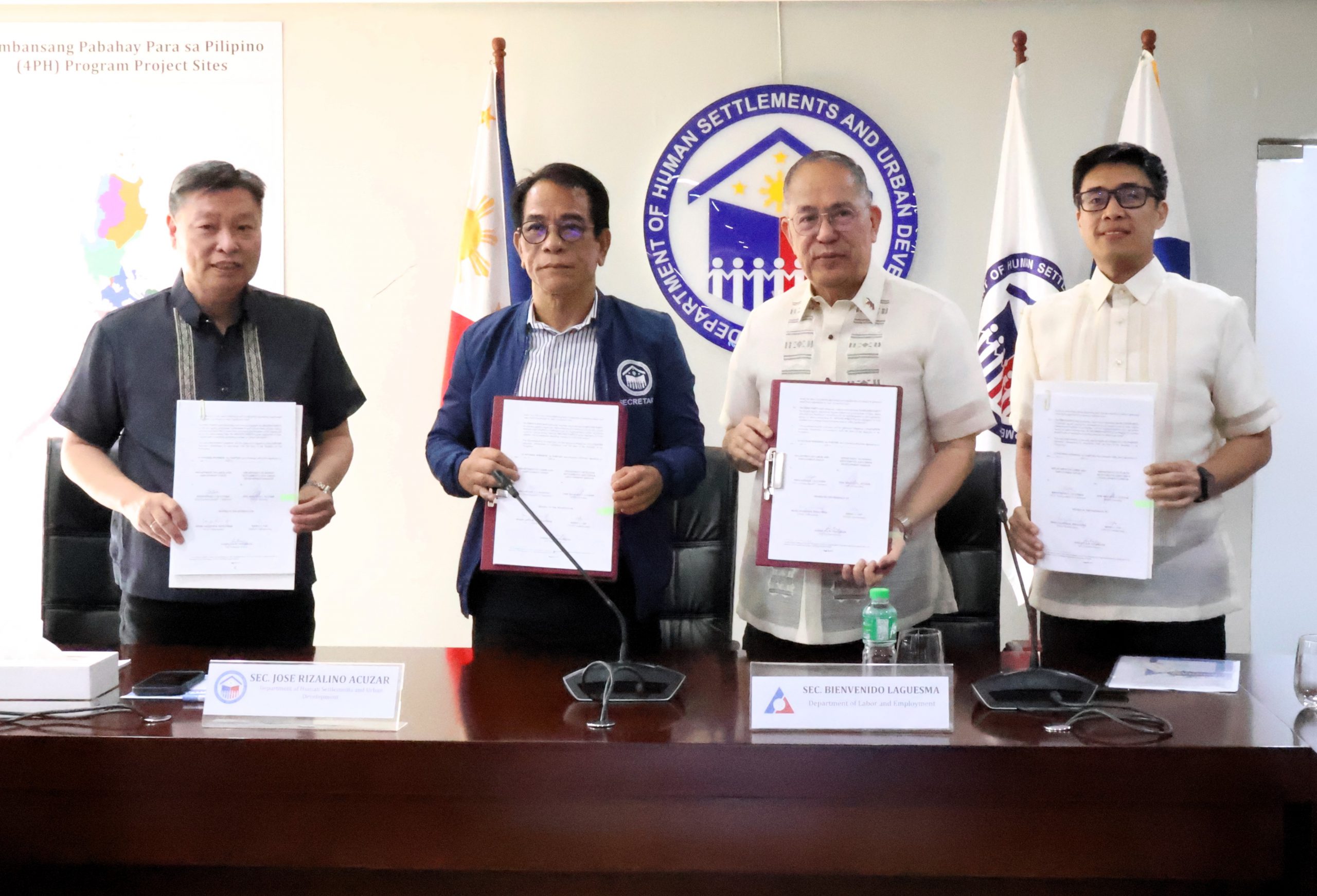QUEZON CITY – The Employees’ Compensation Commission (ECC) marked another milestone in its 50th year of dedicated service to Filipino workers with the signing of a Memorandum of Agreement (MOA) with the Department of Human Settlements and Urban Development (DHSUD) for the establishment of the Workers’ Rehabilitation Center Complex (WRCC) in Barangay Cuyambay, Tanay, Rizal.
Signed by Department of Labor and Employment (DOLE) Secretary and ECC Chairperson Bienvenido E. Laguesma and DHSUD Secretary Jose Rizalino L. Acuzar on April 14, 2025, the MOA outlines the collaboration between ECC and DHSUD in finalizing the required documents, technical specifications, and bidding requirements for the WRCC project.
In his message, Secretary Laguesma emphasized, “This project reflects our duty to pursue a holistic approach to recovery for our workers. More than just compensation, we are building a place of healing, rehabilitation, and hope.” He reaffirmed DOLE’s commitment to transforming the vision of WRCC into a fully realized model of responsive government service.
DHSUD Secretary Acuzar echoed this sentiment, stating that “housing is not just shelter—it is dignity and security.” He assured that DHSUD, through its Key Shelter Agencies, will deliver the technical expertise and development support necessary to ensure the successful construction of the center and complementary housing components for affected workers under the 4PH Program.
The WRCC, envisioned as a first-of-its-kind facility in the country, stems from Letter of Instruction No. 856 issued in 1979. It directs the ECC to put up a dedicated rehabilitation center for workers who have sustained work-related disabilities. After decades of groundwork and planning, the vision is finally taking shape.
Once completed, the WRCC will offer a comprehensive range of services—from physical and psychological rehabilitation to livelihood and skills training—to help affected workers recover and successfully return to work. It represents a major leap in the Commission’s ongoing mission to care for those who have met work-related contingencies.
As part of the agreement, DHSUD will lend its technical know-how through its key shelter agencies, helping ECC craft detailed plans and procurement requirements. In order to closely monitor and support the project’s progress, the agency will also participate in a Special Technical Working Group.
Through this collaboration, ECC and DHSUD reaffirm their shared dedication to creating a future in which every Filipino worker impacted by work-related emergencies can look forward to opportunity, dignity, and healing.
E. Bayangos – REU 2

